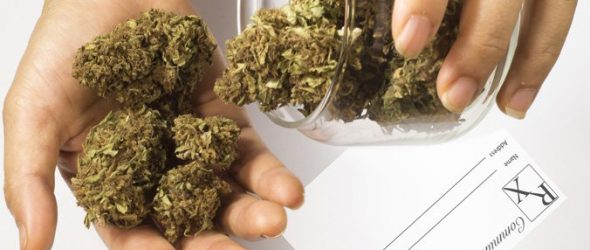
Robert Solomon
NEWPORT BEACH, CALIF. — The full impact of legalizing medicinal cannabis in some parts of the U.S. is hindered by inaccurate, inconsistent information, according to a panelist at the OCTANe Medical Technology Innovation Forum.
Nearly three dozen states have legalized some form of medicinal cannabis. But those laws are not universal in their language, according to Governing.com, a website that covers politics, policy and management. In addition, cannabis is on the Drug Enforcement Administration’s Schedule I list — meaning it has no currently accepted medical use, high potential for abuse and risk for arrest with use.
“We don’t know what we’re really regulating on cannabis at this point,” Robert Solomon, JD, MA, co-chair of the University of California at Irvine’s Center for the Study of Cannabis, told attendees. “We haven’t come to grips with a fact-based analysis” that answers the questions ‘What’s our goal? What’s our point?’ So, we have come up with this mish-mash of incentivizing selling but dis-incentivizing growth.”

The full impact of legalizing medicinal cannabis in some parts of the U.S. is hindered by inaccurate, inconsistent information, according to a panelist at the OCTANe Medical Technology Innovation Forum.
Source:Adobe
He noted that this has led to some confusion surrounding medical cannabis, even in states where medicinal cannabis is legal.
“I had a doctor complain that [a California university] told her that under no circumstances is she to prescribe cannabis,” Solomon continued. “Here she is, knowing that it is going to help with nausea, knowing it is going to help with pain, but she has been told not to prescribe it. That is medical malpractice to me.”

Jessica Lilga
Jessica Lilga, director of key supplier relations at the cannabis brands and distribution company Origin House said that cannabis will “revolutionize health and wellness” as it becomes further regulated.

Thomas Marcotte
One potential way is how medicinal cannabis affects the endocannabinoid system, according to Thomas Marcotte, PhD, co-director of the Center for Medicinal Cannabis Research at the University of California at San Diego.
“This is a really new unique and exciting approach to psychiatric medical health,” he said, noting that other studies currently underway are looking into how medical cannabis might benefit patients with autism, anorexia nervosa and rheumatological conditions.
Kim Kovacs, president of the Los Angeles Venture Association, added that she also saw opportunities for cannabis’ medicinal potential.
“In the last year I have seen over 1,000 women and heard their stories,” she said. “Things like sleep, stress and anxiety and being able to treat [those conditions] individually with cannabis without the side effects from other drugs is a platform for personalized medicine,” she said. – by Janel Miller
References:
DEA. Drug Scheduling. https://www.dea.gov/drug-scheduling. Accessed September 6, 2019.
Kovacs, K et al. “The state of affairs for medical cannabis.” Presented at: OCTANe Medical Technology Innovation Forum; Oct. 28-29, 2019; Newport Beach, Calif.
Governing.com. State Marijuana Laws in 2019 Map. https://www.governing.com/gov-data/safety-justice/state-marijuana-laws-map-medical-recreational.html. Accessed September 3, 2019.
Disclosures: Healio Primary Care was unable to determine relevant financial disclosures prior to publication.


